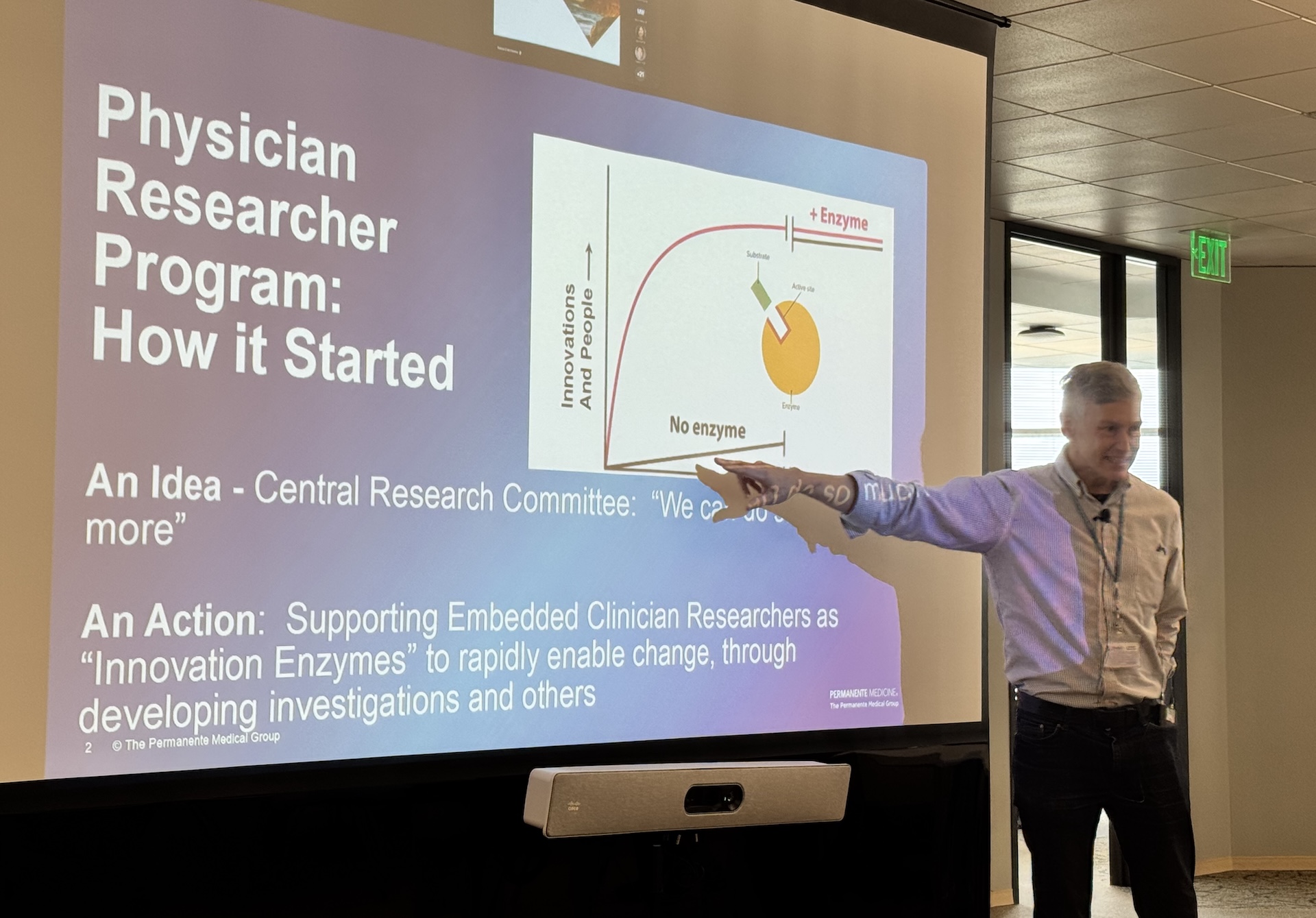Patient-Centered Outcomes Research Institute-funded study will compare methods of addressing social needs to fill care gaps and improve health equity
The Kaiser Permanente Division of Research will receive $4 million from the Patient-Centered Outcomes Research Institute (PCORI) to improve the health of adults with multiple chronic conditions by identifying the best ways to address their social needs.

“New federal policies are being put into place that require health systems to report the number of people they screen for social risks and the number of people who receive referrals,” said Richard Grant, MD, MPH, a research scientist at the Kaiser Permanente Division of Research and The Permanente Medical Group regional director of Research and Evaluation for Complex Needs, who will lead the study. “But no one yet knows the best way to provide these referrals — or if the referrals will close care gaps that improve these patients’ health. This research will help us answer these questions.”
The study will focus on adults with multiple chronic conditions who have documented care gaps and social needs related to food, transportation, housing, utilities, or financial insecurity. Adults with multiple chronic conditions make up one-third of the U.S. population but account for two-thirds of all clinical visits, 70% of in-patient stays, and 71% of health care expenditures. Prior Kaiser Permanente Northern California studies suggest 40% of adults with multiple chronic conditions and clinical care gaps also have at least one social need.

“This project was selected for PCORI funding not only for its scientific merit and commitment to engaging patients and other health care stakeholders, but also because it is being conducted in real-world settings,” said PCORI Executive Director Nakela L. Cook, MD, MPH. “It has the potential to answer an important question about how to improve the health of patients with multiple chronic conditions and fill a crucial evidence gap. We look forward to following the study’s progress and working with Kaiser Permanente to share its results.”
This study was selected through PCORI’s highly competitive review process in which patients, caregivers, and other stakeholders join scientists to evaluate proposals.
Many clinical studies are done under carefully controlled conditions in specialized research centers to learn whether an approach to care works, but health care is rarely delivered in such optimized situations and settings. Pragmatic clinical studies such as this test a treatment’s effectiveness in real-world clinical situations such as standard hospitals and outpatient clinics, and can include a wider range of study participants, making their findings more generally applicable.
No one yet knows the best way to provide these referrals — or if the referrals will close care gaps that improve these patients’ health.
— Richard Grant, MD, MPH
The decision by the National Committee for Quality Assurance and Centers for Medicare & Medicaid Services to incorporate social screening into value-based payment and quality measurements provides an opportunity to conduct research that can identify the best ways the mandate for referrals translates into improved health outcomes.

“This study is a great example of the research we can do within Kaiser Permanente to inform the work that we are committed to doing to address social needs,” said Meagan Brown, PhD, MPH, an assistant investigator at the Kaiser Permanente Washington Health Research Institute and the associate director of the Kaiser Permanente Social Needs Network for Evaluation & Translation (SONNET), which is partnering with Grant on this study.
The new study will compare the effectiveness of 2 approaches for providing referrals. One group of patients will receive calls from a navigator who can assist them with making connections to available social resources; the other group will receive information about relevant social service resources and community-based support services via text, email, or mailed letters.
The research team will determine which program does a better job of helping patients get referrals that help them reduce their care gaps as well as what type of patients benefit from each strategy. Patients will be interviewed to learn about their experiences and outcomes. Both groups will be compared with a control group of adults with chronic conditions who receive routine care and referrals.
“It’s important to know how well we are closing care gaps without either referral program,” said Grant. “Our study will tell us which type of referral program is more effective, but we also need to know if either program is more effective than what we are currently doing.”
To implement the study, Grant will work with Lynn Deguzman, PharmD, regional clinical operations manager for KPNC; Paul Espinas, MD, medical director for Social Determinants of Health at The Permanente Medical Group; Anand Shah, MD, vice president of social health at Kaiser Permanente; and Bechara Choucair, MD, senior vice president and chief community health officer for Kaiser Permanente.

Addressing social needs is a key strategy to improve health equity. Socioeconomic barriers that make it difficult for patients to get to appointments, stay up to date on vaccinations and cancer screening tests, fill prescriptions, or buy healthy foods can create care gaps that result in worse outcomes.
“This funding award will allow us to directly compare strategies that are becoming increasingly common for how the health sector responds to intervene on patients’ social needs,” said Danielle Hessler, PhD, co-director of the Social Interventions Research & Evaluation Network (SIREN) at the University of California, San Francisco, who will work with Grant on the study. “I’m also thrilled that we will work with patient advisors throughout the project to ensure that we are including outcomes and asking the questions that are meaningful to patients.”
Grant’s award has been approved pending completion of PCORI’s business and programmatic review and issuance of a formal award contract.
# # #
About the Kaiser Permanente Division of Research
The Kaiser Permanente Division of Research conducts, publishes and disseminates epidemiologic and health services research to improve the health and medical care of Kaiser Permanente members and society at large. It seeks to understand the determinants of illness and well-being, and to improve the quality and cost-effectiveness of health care. Currently, DOR’s 600-plus staff is working on more than 450 epidemiological and health services research projects. For more information, visit divisionofresearch.kaiserpermanente.org or follow us @KPDOR.





Comments (0)